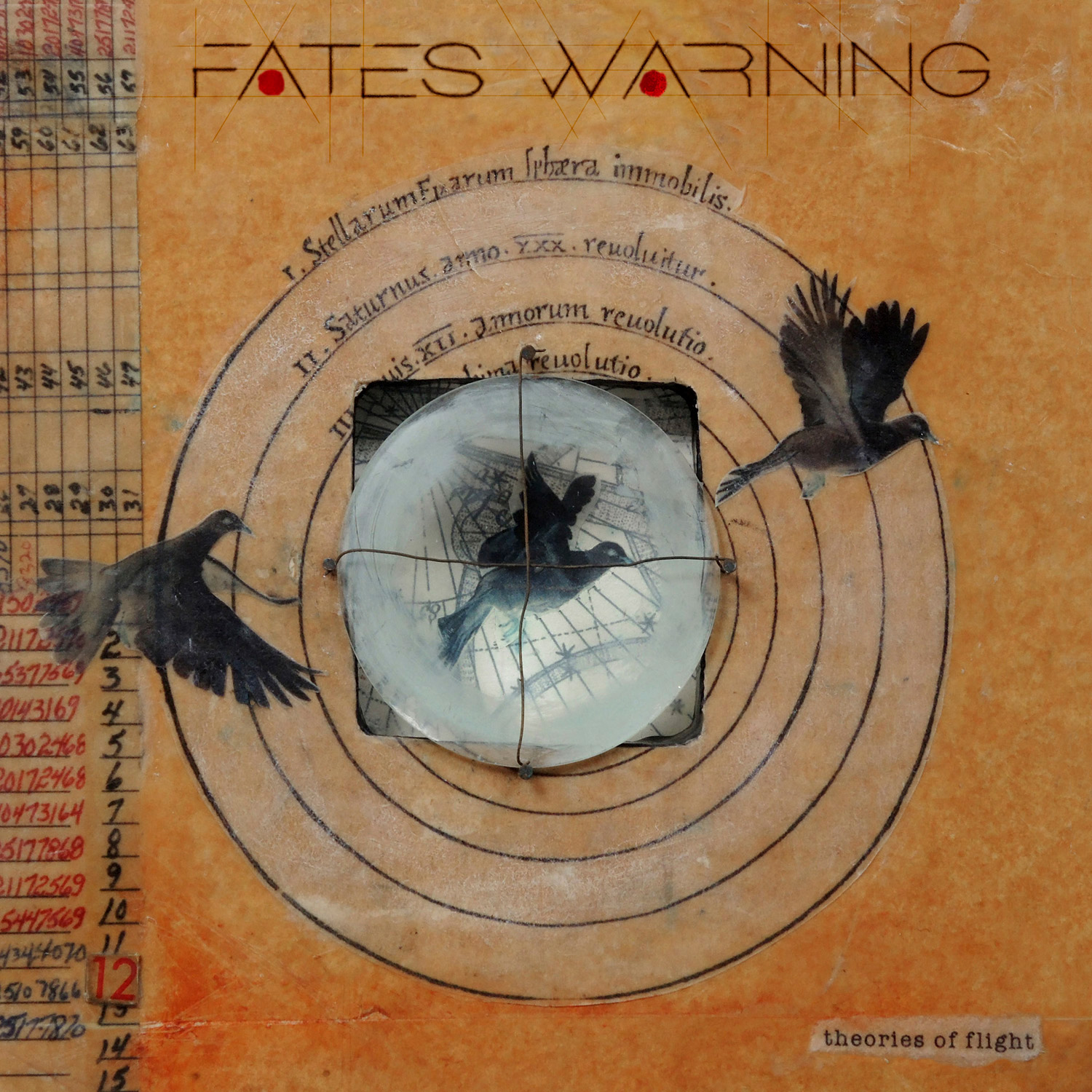 Circumstances have not been kind to prog-metal forefathers Fates Warning. For most of the past decade and a half, the band has been sidelined while far lesser acts have laid claim to the entire genre (oh hi, Dream Theater). The fact that Fates have released some incredibly inaccessible albums has not helped their cause, nor did their 9-year hiatus from making new music altogether. 2013’s comeback Darkness In A Different Light was a heavy, catchy and focused record, and it seemed like Fates Warning was finally back on track. The quick (by FW standards) turnaround for Theories Of Flight seems to bode well, but can the band maintain the high standards they’ve reestablished?
Circumstances have not been kind to prog-metal forefathers Fates Warning. For most of the past decade and a half, the band has been sidelined while far lesser acts have laid claim to the entire genre (oh hi, Dream Theater). The fact that Fates have released some incredibly inaccessible albums has not helped their cause, nor did their 9-year hiatus from making new music altogether. 2013’s comeback Darkness In A Different Light was a heavy, catchy and focused record, and it seemed like Fates Warning was finally back on track. The quick (by FW standards) turnaround for Theories Of Flight seems to bode well, but can the band maintain the high standards they’ve reestablished?
“From The Rooftops” initially seems like an odd choice to open the album, as it does so on a mellow, understated note. But worry not, as all this relaxation is merely a setup for one of Jim Matheos’ patented off-kilter riffs and a particularly fierce delivery from singer Ray Alder. Alder’s vocal abilities have been the subject of some consternation, but on Flight he displays more range and energy than we’ve heard from him in years. The song continues with some fancy cymbal work from drummer Bobby Jarzombek (Halford, Spastic Ink), leading into a ripping solo by lead guitarist Frank Aresti.
Once the dust clears, “Seven Stars” continues in slightly more straightforward fashion, essentially verse/chorus/verse except that said chorus is HUGE. “SOS” is at once catchy and proggy, delivering another soaring chorus from Alder before delving into a dark, keyboard-driven middle section and some stuttering double-kick work on the way out. This one gives me chills. Also worth noting is the involvement of producer/mixer Jens Bogren, of Opeth/Katatonia fame. Bogren handily makes the band’s previous album sound like little more than a glorified demo, adding both clarity and immense sonic girth.
“The Light And Shade Of Things” is the first of two extended-length tracks on this album, and somehow combines the despondent style of Fates’ last 20-plus years with shiny choruses reminiscent of the Parallels era. Again, Alder’s voice is in top form, and I can’t help but wonder if the band’s return to regular work has inspired him to greater heights. The record continues with two surprisingly heavy numbers. “White Flag” takes a meaner approach to the band’s late-’80s gallop, while Alder rocks an almost-power metal vocal line. This song also features a guitar solo tradeoff and some stellar bass work by Joey Vera (also of Armored Saint). The chugging “Like Stars Our Eyes Have Seen” veers a little too close to modern metal for my tastes, but I gotta admit that the bridge section is one of the coolest moments on the record.

Fates Warning often return to lyrical themes of nostalgia and longing for more innocent times, and the 10-minute-plus “The Ghosts Of Home” is perhaps the most point-blank expression of that emotion yet. Beginning with gentle clean guitar and an almost nursery-rhyme-esque melody from Alder, the song wastes little time morphing into something more chaotic, before finally erupting into a flurry of aggressive, technical riffs. Put bluntly, “Ghosts” is one of the most ambitious tracks Fates have ever done, weaving through a variety of musical and emotional movements with expert precision. The instrumental title track acts as a kind of postscript, ending the record with one of the shorter and stranger compositions in the FW catalog.
Fates Warning have realized that being technical and being introspective are not mutually exclusive, and have figured out how to meld both those halves into a cohesive whole. On Theories of Flight, the band’s late-’90s melancholia combines with the heaviness and technicality of their early years, with an ear to the ground for new sounds as well. After a long layoff, Fates Warning prove that Darkness was no fluke, and while Theories may be a bit less immediate than its predecessor, it’s no less stunning.
Rating: Excellent!
DR: 7 | Format Reviewed: 192 kbps mp3
Label: InsideOut

















